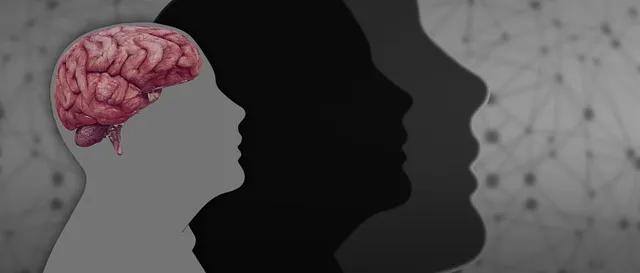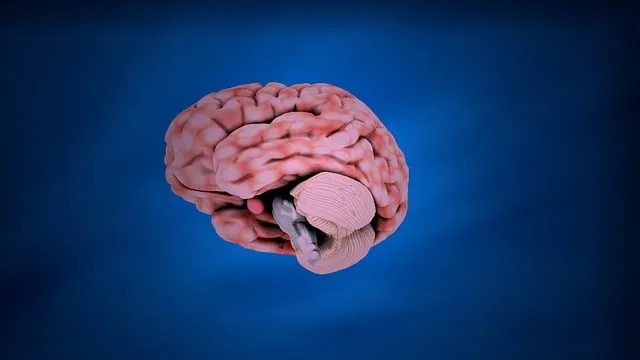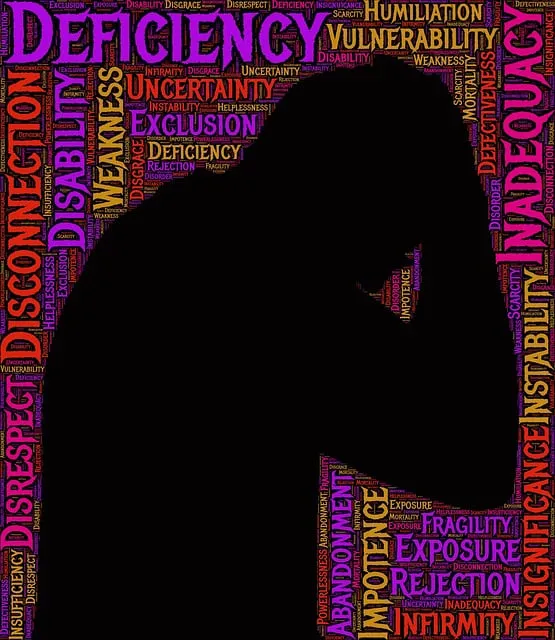Greenwood Village Kaiser Permanente mental health providers offer a unique approach to group therapy, prioritizing understanding group dynamics for overall well-being. They create safe spaces, encourage active participation, and use diverse techniques like Mindfulness Meditation and creative activities to enhance therapeutic benefits. This holistic method not only improves individual mental health but also fosters community bonds, providing long-lasting support beyond sessions. Facilitators focus on risk management, open communication, and emotional intelligence development to ensure successful outcomes. Evaluations measure improvements in emotional well-being, interpersonal skills, and daily functioning, showcasing the facility's commitment to comprehensive care.
Mental wellness group facilitation plays a pivotal role in enhancing therapeutic outcomes. This article explores the art of fostering meaningful connections and healing within supportive communities. We delve into the intricate dynamics of group therapy, highlighting innovative practices from Greenwood Village at Kaiser Permanente, where mental health providers create engaging environments.
From understanding group behavior to crafting safe spaces for vulnerable individuals, these techniques empower facilitators to measure success and foster profound transformations.
- Understanding Group Dynamics for Mental Health
- Greenwood Village: Kaiser Permanente's Approach
- Facilitation Techniques for Engaged Participants
- Creating Safe Spaces for Vulnerable Populations
- Measuring Success in Group Therapy Sessions
Understanding Group Dynamics for Mental Health

In facilitating mental wellness groups, understanding group dynamics is paramount for Greenwood Village Kaiser Permanente mental health providers. These interactions are complex, influenced by diverse individual experiences and emotional states. Effective facilitation requires a nuanced approach to foster a safe, supportive environment where every member feels heard and valued. By recognizing power dynamics, managing expectations, and encouraging active participation, facilitators can enhance the therapeutic benefits of group settings.
Group therapy leverages collective wisdom and shared experiences for emotional healing processes. It also plays a pivotal role in public awareness campaigns development around mental health issues. Through Mindfulness Meditation techniques, facilitators guide members to cultivate present-moment awareness, reducing anxiety and fostering a sense of calm. This holistic approach not only enhances individual well-being but also strengthens the bond within the group, creating a supportive network that extends beyond the therapy room.
Greenwood Village: Kaiser Permanente's Approach

Greenwood Village, a facility under Kaiser Permanente, stands out for its innovative approach to mental wellness group facilitation. Here, mental health providers utilize a holistic strategy that combines therapeutic activities with a supportive community environment. This unique model aims to address not only common mental health concerns like anxiety relief but also delves into complex issues such as trauma support services and self-esteem improvement.
The facility’s design mirrors its therapeutic philosophy, fostering connections and encouraging open dialogue among group members. Through structured sessions, participants gain valuable insights, build resilience, and learn effective coping mechanisms. Greenwood Village’s comprehensive approach ensures that each individual receives personalized care tailored to their specific needs, promoting overall mental wellness within a nurturing and inclusive setting.
Facilitation Techniques for Engaged Participants

Engaging participants is key to successful group facilitation, especially when tackling sensitive topics like mental wellness. At Greenwood Village Kaiser Permanente, mental health providers employ diverse techniques to create an inclusive and interactive environment. One effective method is using open-ended questions that encourage active listening and foster meaningful discussions. This technique allows individuals to share their experiences, fostering a sense of community and understanding among peers.
Additionally, incorporating creative activities such as art therapy or role-playing scenarios can make sessions more dynamic. These activities not only provide an outlet for emotional expression but also offer practical coping skills development. The production of a mental wellness podcast series could further extend these techniques, offering a platform to share insights and experiences long after the group sessions end.
Creating Safe Spaces for Vulnerable Populations

Creating safe spaces is an essential aspect of mental wellness group facilitation, especially when working with vulnerable populations such as those experiencing depression or seeking stress reduction methods. Greenwood Village Kaiser Permanente mental health providers emphasize the significance of fostering an environment where individuals feel secure to share their experiences and emotions openly. This involves more than just ensuring physical safety; it encompasses emotional, psychological, and social security.
Facilitators play a crucial role in risk management planning for mental health professionals by establishing clear guidelines and boundaries within the group setting. By creating a structured yet supportive atmosphere, facilitators encourage participants to build trust and form meaningful connections. This approach not only enhances engagement but also enables individuals to explore their challenges, including mental health issues, without fear of judgment or repercussions, thereby fostering effective depression prevention strategies and overall well-being.
Measuring Success in Group Therapy Sessions

Measuring success in group therapy sessions is a multifaceted process that goes beyond simply tracking attendance or completion of predetermined goals. At Greenwood Village Kaiser Permanente mental health providers, we recognize that meaningful progress often manifests in subtle shifts and changes within individuals. Therefore, our evaluation methods focus on assessing improvements in participants’ emotional well-being, interpersonal skills, and overall functioning in daily life.
Effective group facilitation techniques, such as fostering open communication strategies, employing conflict resolution techniques, and cultivating emotional intelligence, play a pivotal role in these outcomes. By encouraging active participation, creating a safe and supportive environment, and facilitating meaningful connections among members, therapists can help individuals develop coping mechanisms, enhance self-awareness, and build resilient support networks. This holistic approach ensures that success is not just quantified but also qualitatively enriched, fostering lasting positive changes for each participant.
Group facilitation techniques play a pivotal role in enhancing mental wellness, as evidenced by innovative programs like those offered at Greenwood Village by Kaiser Permanente’s mental health providers. By understanding group dynamics and employing strategies such as creating safe spaces and measuring success, facilitators can foster engaging environments that support vulnerable populations. These techniques not only revolutionize group therapy but also underscore the importance of a holistic approach to mental health care.






